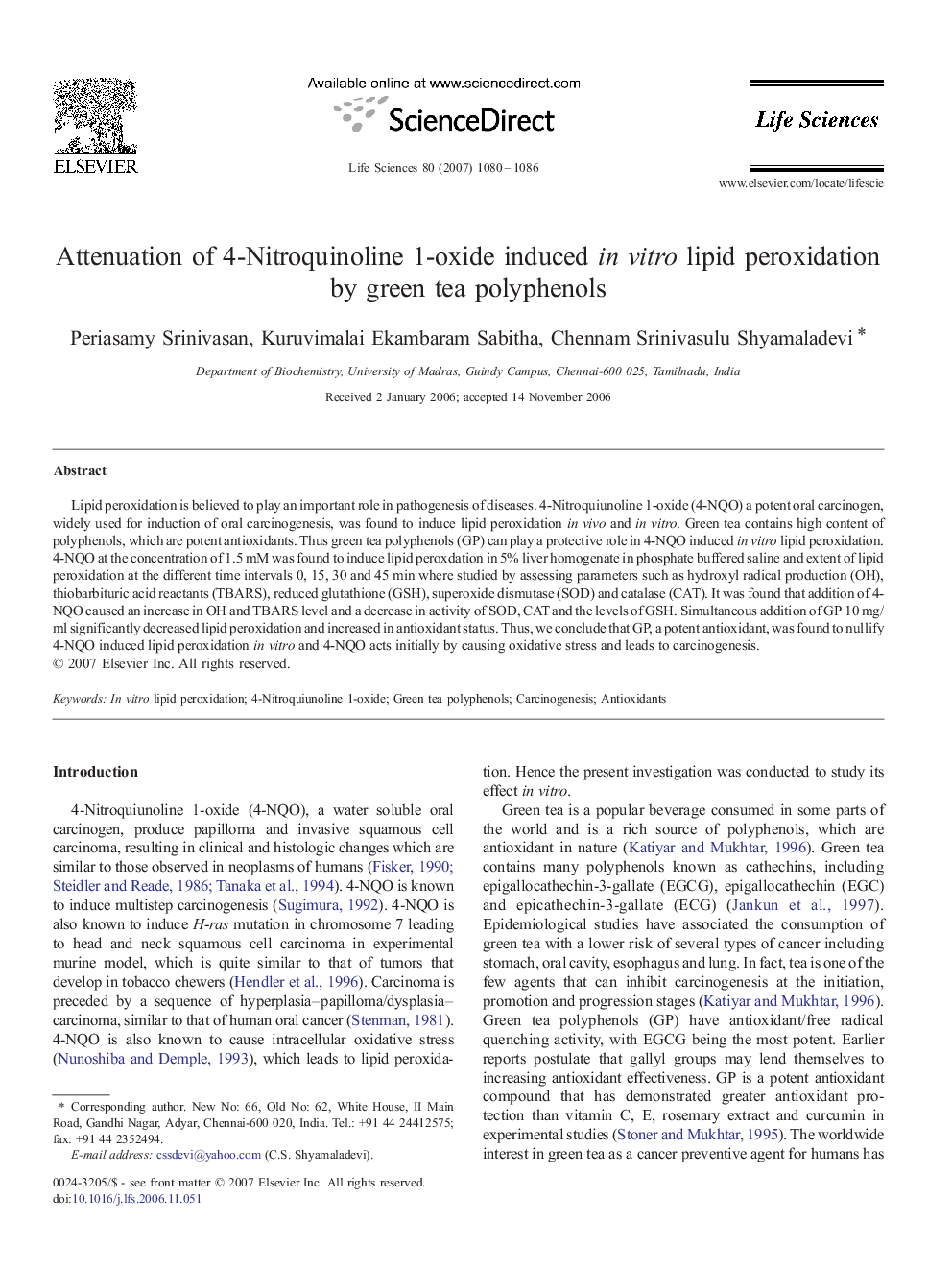| Article ID | Journal | Published Year | Pages | File Type |
|---|---|---|---|---|
| 2552982 | Life Sciences | 2007 | 7 Pages |
Lipid peroxidation is believed to play an important role in pathogenesis of diseases. 4-Nitroquiunoline 1-oxide (4-NQO) a potent oral carcinogen, widely used for induction of oral carcinogenesis, was found to induce lipid peroxidation in vivo and in vitro. Green tea contains high content of polyphenols, which are potent antioxidants. Thus green tea polyphenols (GP) can play a protective role in 4-NQO induced in vitro lipid peroxidation. 4-NQO at the concentration of 1.5 mM was found to induce lipid peroxdation in 5% liver homogenate in phosphate buffered saline and extent of lipid peroxidation at the different time intervals 0, 15, 30 and 45 min where studied by assessing parameters such as hydroxyl radical production (OH), thiobarbituric acid reactants (TBARS), reduced glutathione (GSH), superoxide dismutase (SOD) and catalase (CAT). It was found that addition of 4-NQO caused an increase in OH and TBARS level and a decrease in activity of SOD, CAT and the levels of GSH. Simultaneous addition of GP 10 mg/ml significantly decreased lipid peroxidation and increased in antioxidant status. Thus, we conclude that GP, a potent antioxidant, was found to nullify 4-NQO induced lipid peroxidation in vitro and 4-NQO acts initially by causing oxidative stress and leads to carcinogenesis.
